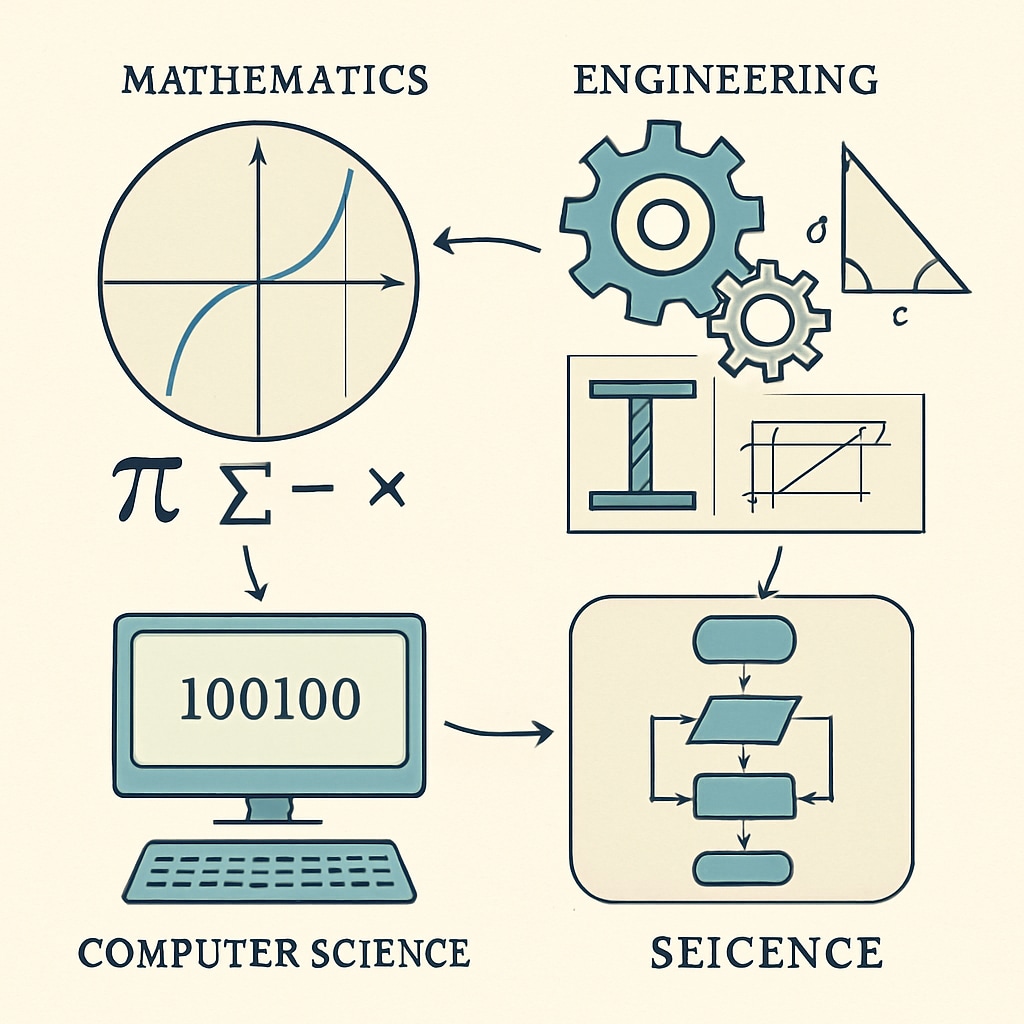For 16-year-old high school students passionate about mathematics and science, the process of choosing a university major can feel overwhelming. Balancing personal interests, career aspirations, and academic strengths is no small task. This guide aims to provide a clear framework for these students to make informed decisions while staying true to their passion for math and science.
Understanding Your Passion for Mathematics
Before diving into specific majors, it’s crucial to understand your connection to mathematics. Ask yourself: What aspects of math do I enjoy most? Do I prefer theoretical concepts like pure mathematics or practical applications in fields such as engineering or computer science? Identifying these preferences will help narrow down the list of potential majors.
For example, students who thrive on abstract thinking may be drawn to pure mathematics or even philosophy. On the other hand, those who enjoy problem-solving and creating tangible solutions might explore applied mathematics or STEM-related fields like data science and physics.

Exploring University Majors for Math Enthusiasts
Math-loving students have a wide array of university majors to choose from. Here are some popular options:
- Pure Mathematics: Focuses on abstract theories, logical reasoning, and advanced problem-solving.
- Applied Mathematics: Combines mathematical principles with real-world applications in fields like finance, engineering, and technology.
- Computer Science: Merges programming and algorithms with mathematical foundations.
- Physics: Uses math to explore the laws of nature and the universe.
- Data Science: Applies statistics and mathematical modeling to analyze large datasets.
- Engineering: Incorporates math to design and build structures, machines, or systems.
Each of these options offers unique career paths and opportunities. To make the best decision, students should research the curriculum, job prospects, and skill requirements for each major.

Building a Decision-Making Framework
Choosing the right major requires careful thought and planning. Here’s a step-by-step framework for self-guided exploration:
- Self-Assessment: Reflect on your strengths, interests, and values. Consider taking career aptitude tests or consulting with a guidance counselor.
- Research: Dive into detailed descriptions of university programs. Resources like Wikipedia’s STEM fields overview can be a helpful starting point.
- Talk to Experts: Reach out to professors, alumni, or professionals in your desired field to gain real-world insights.
- Consider Future Trends: Explore emerging industries and technologies that align with your skills. For example, fields like artificial intelligence and machine learning heavily rely on mathematics.
- Test the Waters: Enroll in summer courses or internships to experience the practical aspects of potential majors.
By following these steps, students can make an informed decision that aligns with their passions and long-term goals.
Balancing Passion and Practicality
While passion for mathematics is important, practicality should also play a role in decision-making. For example, consider the job market demand for specific majors and the potential for career growth. Fields such as data science and computer engineering are currently booming, offering lucrative opportunities for math enthusiasts.
In addition, students should think about their preferred learning environment. Do they enjoy collaborative projects or independent research? Are they comfortable with hands-on experiments or do they prefer theoretical problem-solving? Understanding these preferences can help students find a program that suits their style.
As a result, choosing a major becomes a balanced decision that accounts for both academic passion and practical career considerations.
Conclusion: Navigating the Crossroads
For high school students who love math and science, the journey of choosing a university major is both exciting and challenging. By exploring their interests, researching options, and considering future career prospects, they can confidently navigate this crossroads. With the right preparation, they’ll be able to build a fulfilling academic and professional path that aligns with their passion for mathematics.
Remember, you’re not alone in this process. Seek advice from mentors, parents, and academic advisors to guide you toward the best choice. And above all, trust your instincts—your enthusiasm for math will lead you to incredible opportunities!


